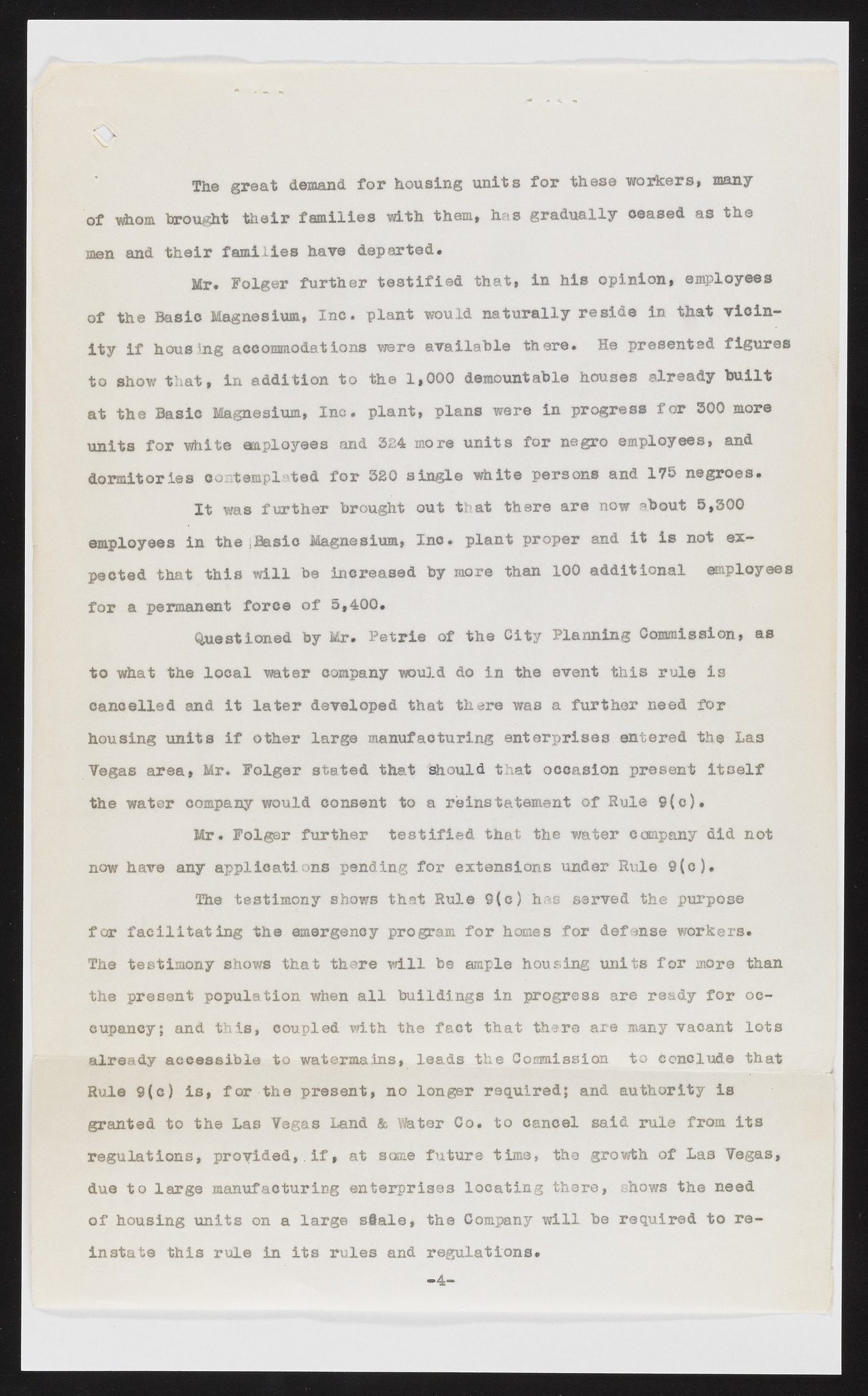Copyright & Fair-use Agreement
UNLV Special Collections provides copies of materials to facilitate private study, scholarship, or research. Material not in the public domain may be used according to fair use of copyrighted materials as defined by copyright law. Please cite us.
Please note that UNLV may not own the copyright to these materials and cannot provide permission to publish or distribute materials when UNLV is not the copyright holder. The user is solely responsible for determining the copyright status of materials and obtaining permission to use material from the copyright holder and for determining whether any permissions relating to any other rights are necessary for the intended use, and for obtaining all required permissions beyond that allowed by fair use.
Read more about our reproduction and use policy.
I agree.Information
Digital ID
Permalink
Details
More Info
Rights
Digital Provenance
Publisher
Transcription
The great demand for housing units for these woifeers, many of whom brought their families with them, has gradually ceased as the men and their families have departed, Mr. Folger further testified that, in his opinion, employees of the Basic Magnesium, Inc. plant would naturally reside in that vioin-ity if housing accommodations were available there. He presented figures to show that, in addition to the 1,00 0 demountable houses already built at the Basic Magnesium, Inc. plant, plans were in progress for 500 more units for white employees and 324 more units for negro employees, and dormitories contemplated for 320 single white persons and 175 negroes. It was further brought out that there are now about 5,300 employees in the iBasic Magnesium, Inc. plant proper and it is not expected that this will be increased by more than 100 additional employees for a permanent force of 5,400. Questioned by Mr. Petrie of the City Planning Commission, as to what the local water company would do in the event this rule is cancelled and it later developed that there was a further need for housing units if other large manufacturing enterprises entered the Las Vegas area, Mr. Folger stated that should that occasion present itself the water company would consent to a reinstatement of Rule 9(c). Mr. Folger further testified that the water company did not now have any applications pending for extensions under Rule 9(c). The testimony shows that Rule 9(c) has served the purpose for facilitating the emergency program for homes for defense workers. The testimony shows that there will be ample housing units for more than the present population when all buildings in progress are ready for occupancy; and this, coupled with the fact that there are many vacant lots already accessible to watermains, leads the Commission to Conclude that Rule 9(c) is, for the present, no longer required; and authority is granted to the Las Vegas Land & Water Co. to cancel said rule from its regulations, provided,.if, at same future time, the growth of Las Vegas, due to large manufacturing enterprises locating there, shows the need of housing units on a large stale, the Company will be required to reinstate this rule in its rules and regulations. \: -4-

